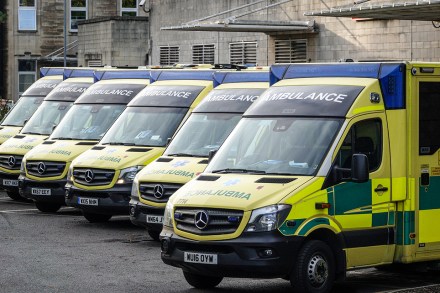Where were the longest A&E waits?
The bare platform A 112-space car park built to serve the railway station in the Cambridgeshire village of Manea was used by just three cars in its first week. — The station, formerly a ghost station with one train a week, has been revived but even so is only served by two trains every hour. — Yet had it not been for the Civil War, it could have been the capital of England. Charles I planned an English Versailles there, surrounded by a great city called Charlemont – all built on land reclaimed from the fens. Thanks to the war, however, nothing ever got built. — The name Charlemont lives on





